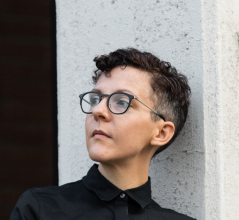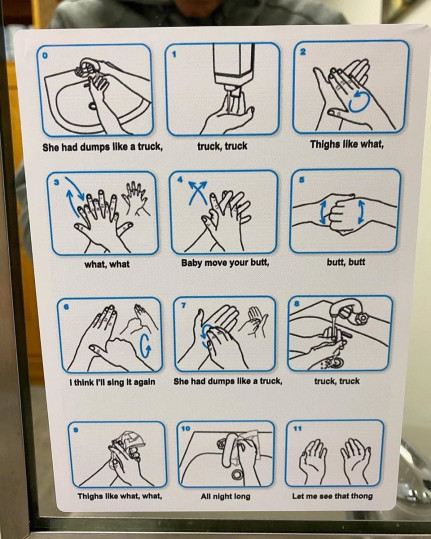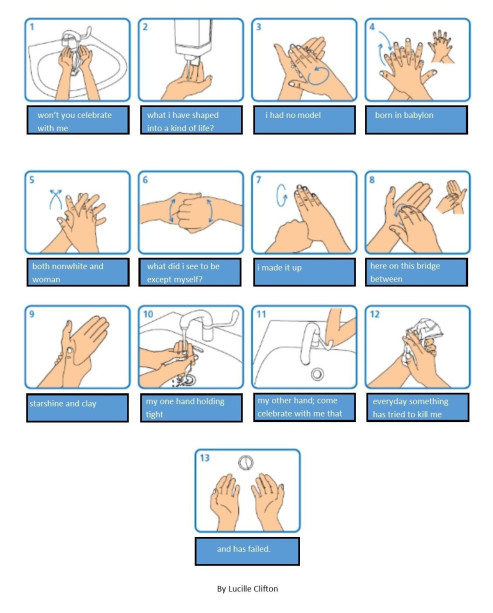Wash Your Lyric (Essays): A Writing Prompt for a Strange Time
By Alex Marzano-Lesnevich
The situation, as we all know, changes by the hour, sometimes by the minute. What seemed unthinkable yesterday is the new normal; what seemed unthinkable last week—well, last week was a different era entirely.
I teach at Bowdoin College, which was and is on spring break, and which, when classes do resume next week, will switch to online-only for the remainder of the school year. With only a few necessary exceptions for those who don’t have anywhere else to go or have visa issues, students will not be returning to campus. I feel for them, especially the seniors whose college lives have evaporated with no chance at in-person goodbyes, and those whose home lives are unwelcoming or abusive. And I feel for them even more as they, and all of us, are subsumed into this whirl of uncertainty.
As an epidemiologist friend of mine put it, if the situation feels unprecedented in our lifetimes, it’s because it’s unprecedented in our lifetimes.
There is, in other words, plenty for us to think about. And so I will admit: I haven’t been thinking about writing.
When I emailed my students to check in, asking how they were and what I could do, I assumed they hadn’t been, either. But the responses came back: they’d like a writing prompt, please. A prompt like the kind I usually start each class with, a place for us to practice the making of art together, practice putting whatever is in our hearts and our minds and our memories to the page. And right now, a place for us to put all this uncertainty.
So for them, and for me, and all of us right now who could use a short assignment, a brief encouragement to acknowledge and feel this moment and turn it into art, here’s a writing exercise we can do together.
You’ve seen the handwashing diagrams, the ones intended to give us something—anything—else to sing beyond yet another rendition of Happy Birthday, many of them made through Wash Your Lyrics, a website created by 17-year-old William Gibson, using a poster from Britain’s National Health Service. Here’s one for Sisqo’s “Thong Song,” which I fully remember dancing to when I was my students’ age and 9/11 was still two years away, and we hadn’t yet had our worlds as disrupted as these kids just have:

Good, right? Makes you smile, keeps time while you keep safe. Gives you, in other words, a short assignment to keep your anxiety at bay.
Now try this:

I wish I knew whom to credit for turning Lucile Clifton’s poem “won’t you celebrate with me” into a handwashing diagram—it was making the rounds on Twitter—but when I saw it, something unlocked. It made me wonder: what if we treated the handwashing diagram as inspiration for a hermit crab essay?
In Brenda Miller and Suzanne Paola’s Tell it Slant, they define a hermit crab essay as one in which the essayist borrows the form—the hard, hermit crab shell—from elsewhere in the world, and treats it as the container to shelter some deeply personal thing to be explored. “It is an essay that deals with material that seems born without its own carapace,” they write. “[M]aterial that is soft, exposed, and tender, and must look elsewhere to find the form that will best contain it.”
Soft, exposed, and tender—sound like anyone you know right now?
So for a prompt, try writing into the handwashing diagram, seeing what text you can pair with each step. (The Wash Your Lyrics website has a place for you to enter your own text.) What memories come up for you, as you write? What do the instructions suggest to your subconscious? And how can their orderly progression of steps shelter the disorderly progression of your thoughts in this time?
And—important, too—is there anywhere you want your essay to become less orderly? For the words to overspill the diagram? If that starts to happen, let it. Write into that uncertainty, and explore. What tension have you uncovered? What is at stake in your refusal, now, to be contained by the form? (For inspiration, here, try checking out Jill Talbot’s “The Professor of Longing,” in which the narrator’s life and anxieties gradually overspill the hermit crab form of a syllabus.)
Then take it further, beyond handwashing. Are there other found or hermit crab forms you can see in the world around you, in its response to the virus? Other forms you might use as inspiration for an essay? Perhaps one of those ubiquitous sales emails from a company talking about its virus response; or a text chain as you try to convince your loved ones to stay inside; or even instructions for a Zoom cocktail hour?
Have fun with it. Explore. A different form—a different short assignment—for each day.
I hope it becomes something that shelters you, as art must for all of us.
Alex Marzano-Lesnevich is an assistant professor at Bowdoin College and the author of THE FACT OF A BODY: A Murder and a Memoir. Their most recent piece was “Body Language” in the December 2019 Harper’s.
Author Photo by Greta Rybus
This piece was originally published in Brevity's Nonfiction Blog.